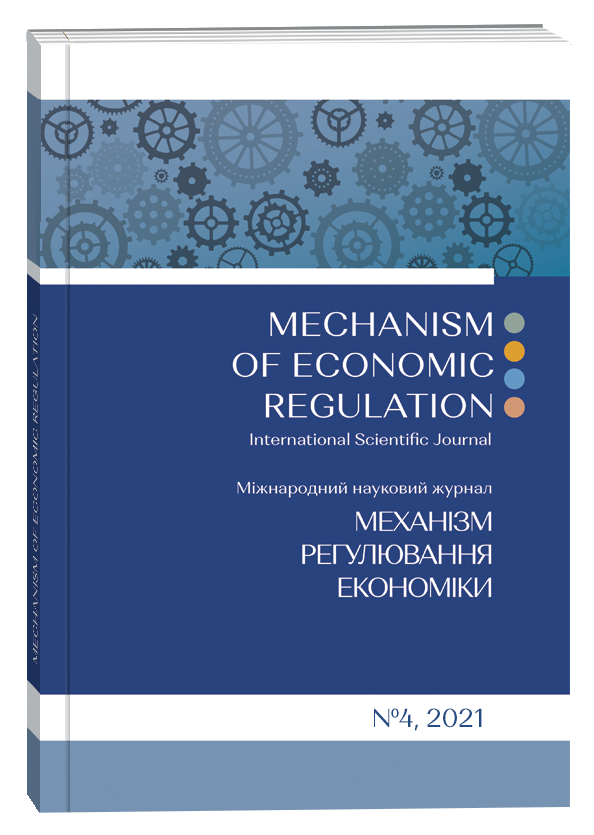SCIENTIFIC ASPECTS OF THE FORMATION OF THE LOGISTICS SYSTEM OF AGRICULTURAL COMPANIES
Abstract
The use of research in the field of logistics management of agricultural companies allows increasing the level of information access and transparency of information on the economic feasibility of logistics systems of agricultural companies in China. We need leverage to influence the dissemination of science and the ability to obtain initial data on the logistics management of agricultural enterprises. This article analyses the work of representatives of international scientific schools and Chinese scientists on research of the logistics management system in the work of agricultural companies. The main elements of scientific research, containing theoretical provisions, methodological support in the study of logistics systems of agricultural companies. The concept of scientific research in the formation of the logistics system of agricultural companies, which contains the theoretical provisions of logistics management, methodological support for monitoring the product potential of logistics systems of agricultural companies, the formation of a system of indicators of logistics systems. Scientific principles of formation of logistic system of agricultural companies are offered, which include principles of system integrity, principles of voluntariness, principles of balance, principles of adaptation to peculiarities of agricultural production, principles of increasing basic competitiveness of agricultural enterprises, principles of integration and new construction. The volumes of the main agricultural products in physical terms of China, Japan, USA, Canada, France, Germany and the main indicators of efficiency of agricultural products of China and developed countries in terms of costs, productivity, capital turnover, stock, value added in GDP. The general conclusion of scientific research and prospects of further scientific researches are formed.
References
Open science (2022, February 17). Wikipedia. Retrieved from https://uk.wikipedia.org/wiki/%D0%92%D1%96%D0%B4%D0%BA%D1%80%D0%B8%D1%82%D0%B0_%D0%BD%D0%B0%D1%83%D0%BA%D0%B0
Bushou, Z., Zhen Z. et al. (2004). Introduction to Japanese agriculture. Beijing: China agriculture press.
Yunfeng, H. (2003). The development and changes of American logistics organization model. Logistics technology, 1, 44–45.
Qingyi, W. (2000). Logistics basics. Beijing: Tsinghua university press, 58–61.
Min, Z. (2007). Agricultural products logistics. Beijing: China materials press, 44–45.
Benjamin, S. (1992). Blanchard. Logistics Engineering and Management (4th Edition). Prentice Hall, 36–37.
Velychko, O., Velychko, L., Ramanauskas J. (2016). Transformation and development of production-logistics enterprises in Ukrainian agrarian economy. Management Theory and Studies for Rural Business and Infrastructure Development, 1, 70–87.
Hui, G., Lin, X., Yun W., Yuanyuan S. (2009). A brief discussion on agricultural enterprise management. Anhui agricultural science bulletin, 1, 15–21.
Feng, H. (2006). Comparative analysis of world agricultural products logistics. World agriculture, 1, 5–8.
Zongcheng, Z. (2007). Logistics information management. Guangzhou: Sunyatsen university press, 37–45.
McKinnon, A. (2003). Analysis of Transport Efficiency in the UK food supply chain, logistics Research center. Heriot-Watt University, 123–134.
Dinghuan, H., Shengzhong, Z. (2002). Logistics economy. Beijing: People's traffic press, 89–98.
Dudin, V.N., Lyasnikov, N.V., Leont’eva, L.S., Reshetov, K.Y., Sidorenko, V.N. (2015). Business Model Canvas as a Basis for the Competitive Advantage of Enterprise structures in the Industrial Agriculture. Biosciences biotechnology research Asia, 12(1), 887–894.
Hongbo, T. (2019). Comparison of key indicators of agricultural circulation modernization. China Circulation Economy, 2, 41–44.


